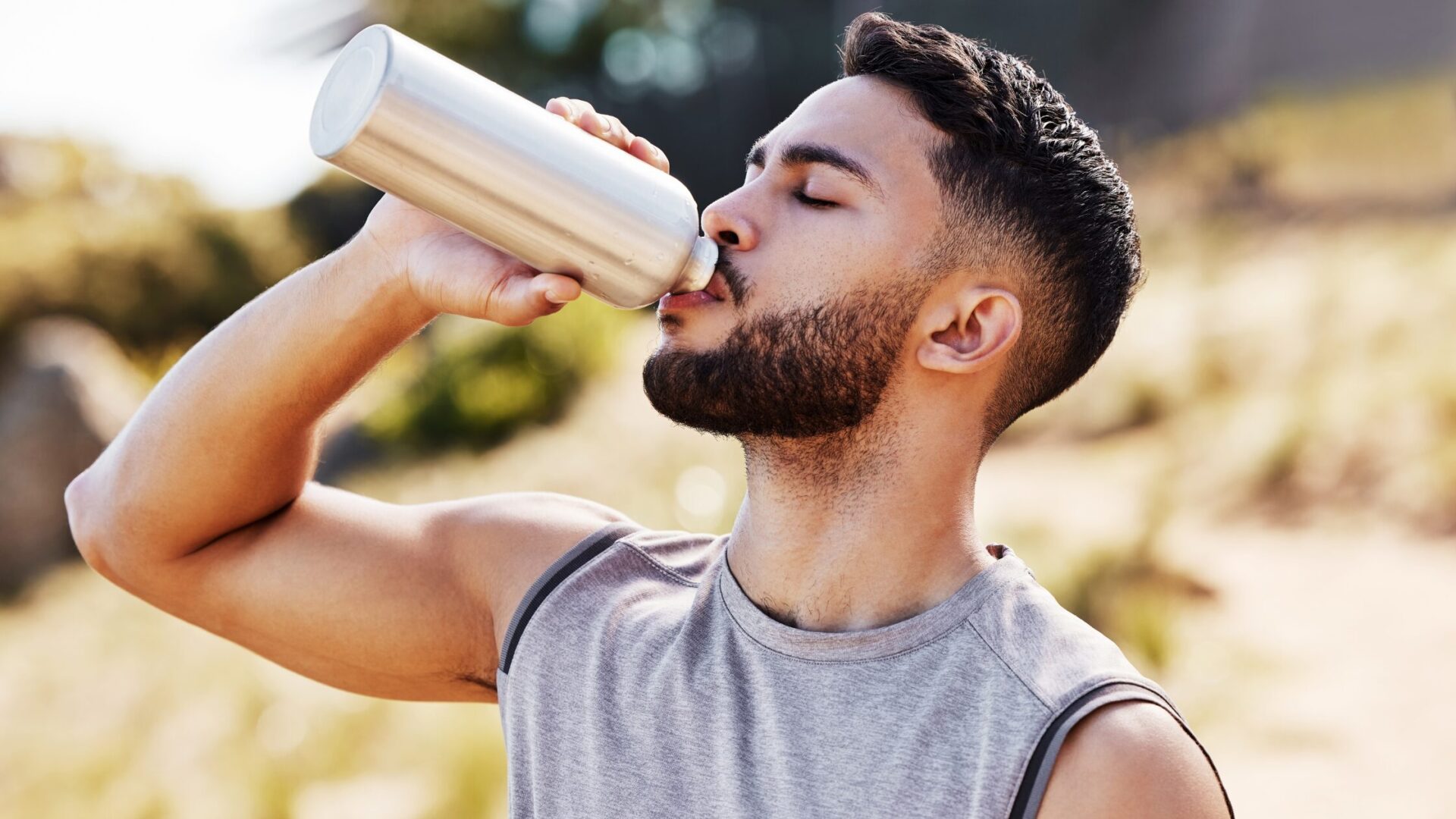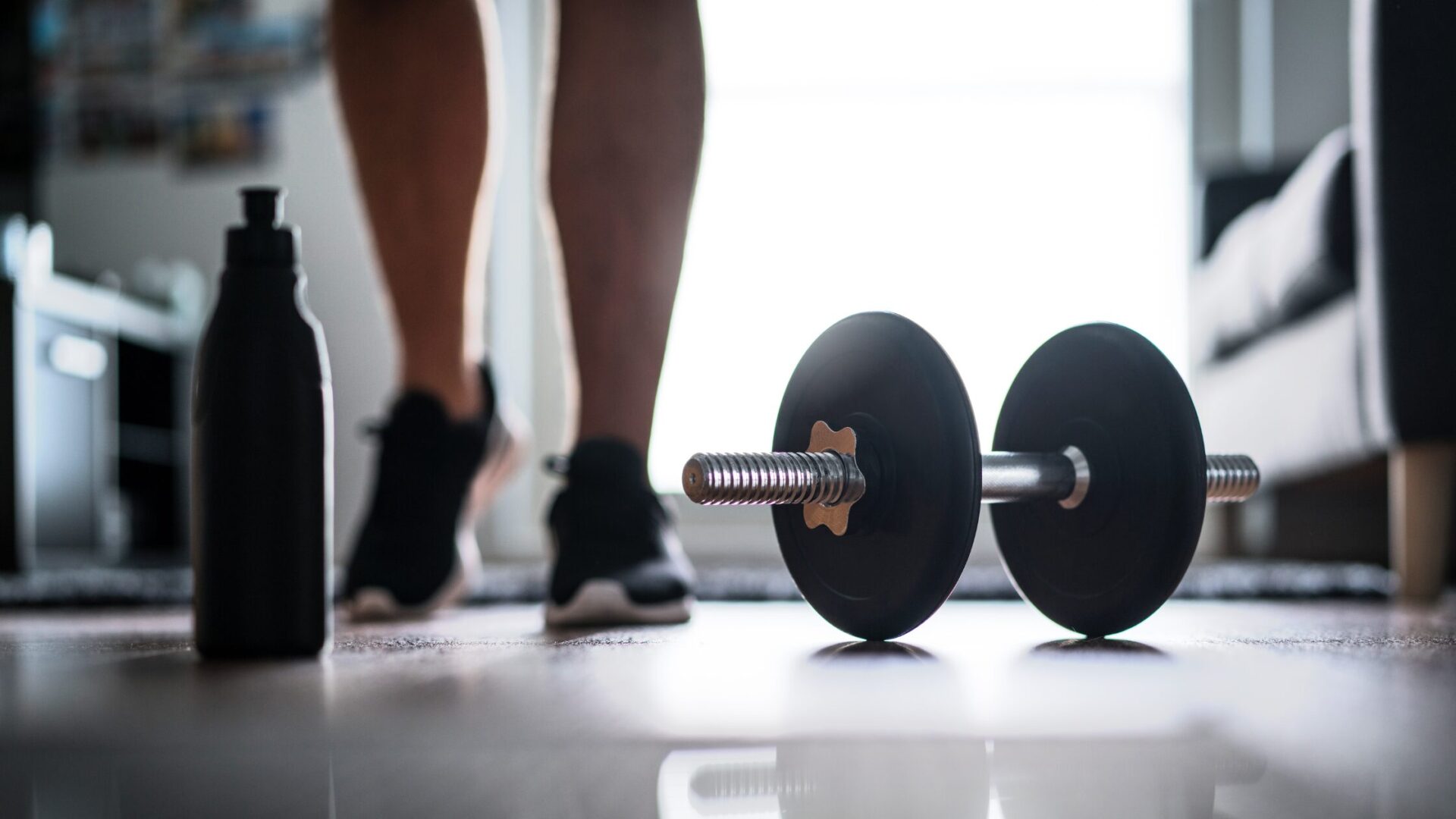Benefits of Hydration and Tips to Stay Hydrated In 2024
Introduction
Hydration is not merely about quenching thirst—it’s a fundamental aspect of health and well-being. Every cell, tissue, and organ in our body requires water to function correctly. Below, we explore how staying adequately hydrated can positively impact various aspects of our health:
● Physical Performance: Water is essential during physical activity to maintain optimal body temperature and lubricate joints.
● Cognitive Function: Adequate hydration is crucial for concentration, alertness, and short-term memory.
● Digestive Health: Water helps to dissolve nutrients for absorption and supports regular digestion.
● Detoxification: It enables the body to flush out waste products through urination, perspiration, and bowel movements.
● Skin Health: Hydration contributes to skin elasticity and vitality, potentially reducing signs of aging.
Understanding Hydration
Hydration is the process of maintaining a balance of fluids in the body. It is critical for the survival and proper functioning of our systems. To comprehend its importance, it’s essential to recognize that the human body is composed of about 60% water. Below are key points that illustrate the role of water in our bodily functions:
● Cellular Homeostasis: Water is vital for the maintenance of homeostasis at the cellular level, facilitating the transport of nutrients and oxygen into cells and removing waste products.
● Organ Function: Our vital organs, including the heart, brain, and kidneys, depend on adequate hydration to function effectively. Water serves to regulate body temperature and maintain blood volume.
● Physical Performance: During exercise or any physical exertion, the body loses water through sweat. Replenishing this lost fluid is crucial for sustaining energy levels, strength, and endurance.
● Mental Function: Cognitive abilities such as focus, clarity of thought, and decision-making are greatly influenced by hydration levels. Even mild dehydration can impair these functions and mood.
Suboptimal water intake can lead to dehydration, which impacts bodily functions negatively and can manifest as fatigue, headache, decreased coordination, and cognitive impairment. This underscores why proper hydration is not just beneficial but essential for health and performance.
Health Benefits of Hydration
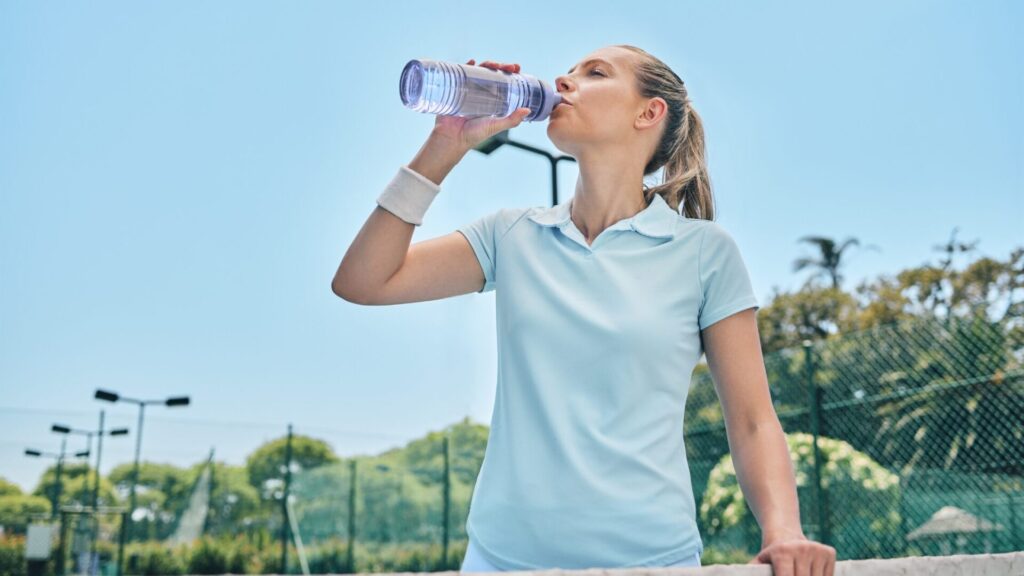
Staying well-hydrated is one of the easiest and most effective ways to keep our bodies functioning at their best. Below are more detailed insights into the extensive benefits hydration brings to our health:
Improved Energy Levels and Weight Management
● Adequate water intake is associated with increased energy levels. Dehydration can lead to feelings of fatigue because when there is not enough water, the body has to work harder to perform its normal functions (Mayo Clinic).
● Water as an appetite suppressant: Drinking water before meals can lead to reduced hunger and, subsequently, lower calorie intake, aiding in weight management.
Enhanced Cognitive Function
● Focus and mental clarity are heightened with proper hydration, as the brain relies on a balance of water and other elements to operate efficiently (Harvard Medical School).
Efficient Bodily Processes
● Hydration facilitates efficient circulation and waste removal, which includes aiding the kidneys in filtering out toxins from the bloodstream (National Kidney Foundation).
● It is also a key factor in regulating body temperature, especially during exercise or in hot weather.
Digestive Health and Detoxification
● Healthy digestion and regular bowel movements depend on appropriate hydration. Water helps to break down food, absorb nutrients, and pass waste smoothly through the intestines.
● By aiding in detoxification, water helps the body remove unwanted substances, reducing the load on the liver and kidneys.
Skin Health
● Hydration can improve skin health by contributing to its elasticity and moisture content, potentially reducing the appearance of fine lines and wrinkles (American Academy of Dermatology). It may also help with conditions such as dryness or acne by promoting a healthy balance in the skin’s composition.
Recognizing Dehydration

The ability to recognize the signs and symptoms of dehydration is crucial for maintaining one’s health. It’s important to heed these warnings as they are the body’s way of signaling a need for more fluids. Here are key indicators:
Signs and Symptoms
● Dry mouth and thirst: These are often the first signs, signaling that it’s time to drink water.
● Reduced urine output: Less frequent urination or dark yellow urine can indicate dehydration.
● Fatigue and weakness: A lack of fluids can result in a feeling of tiredness or sluggishness.
● Dizziness or lightheadedness: Dehydration can cause blood pressure to drop, leading to dizziness.
● Confusion: Inadequate hydration can impair cognitive functions, resulting in disorientation.
● Dry skin: Skin may appear dry and lack its normal elasticity when the body is dehydrated.
Consequences of Chronic Dehydration
Prolonged or chronic dehydration can lead to more severe health issues including:
● Kidney stones: A lack of water can cause minerals to crystallize in the kidneys.
● Urinary tract infections: Dehydration can increase the risk of developing UTIs.
● Hypertension: Because blood volume decreases with dehydration, the heart must work harder to pump, potentially leading to high blood pressure.
● Digestive disorders: Chronic dehydration can contribute to problems such as constipation and an increased risk of acid reflux.
● Decreased immune function: Adequate hydration is essential for the immune system to operate effectively and protect the body from illness.
Daily Water Intake Recommendations
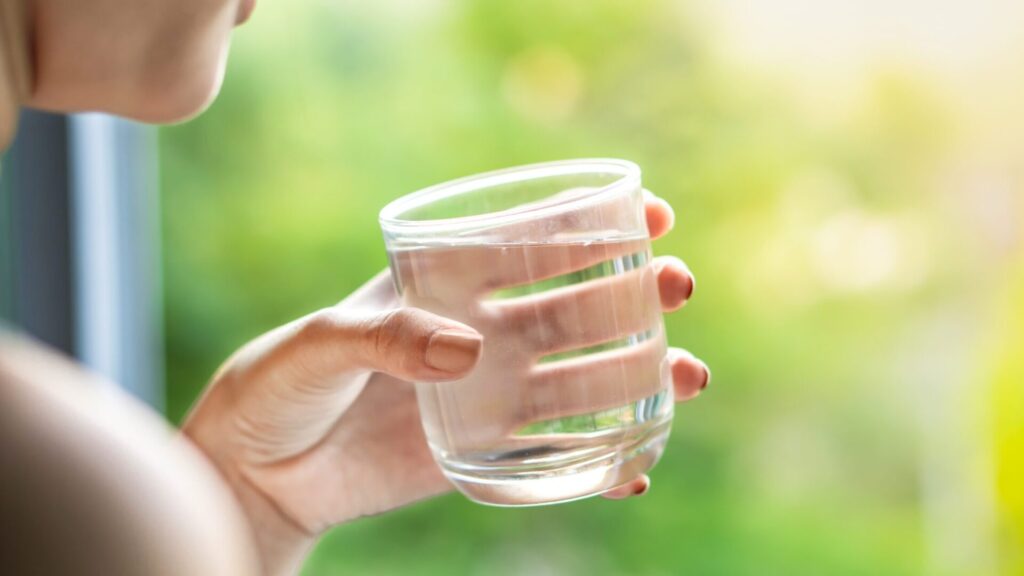
Proper hydration is crucial for health, but the amount of water each person needs can vary based on several factors, including age, weight, climate, physical activity, and health status. Below are general guidelines for different demographics:
Adults
● General Recommendation: The U.S. National Academies of Sciences, Engineering, and Medicine determined that an adequate daily fluid intake is about 3.7 liters (125 ounces) for men and 2.7 liters (91 ounces) for women from all beverages and foods.
● For Athletes: Athletes can lose a significant amount of water through sweat and should drink additional fluids to match this loss. The American Council on Exercise suggests drinking 17 to 20 ounces of water 2 to 3 hours before exercising, continuing with 8 ounces every 20 to 30 minutes during the activity.
Children
● The amount of water children need depends on their age, size, and level of activity. The American Academy of Pediatrics suggests that kids ranging from 4 to 8 years old should drink about 5 cups (40 ounces) of water every day.
Pregnant or Breastfeeding Women
● Pregnant women need more water to stay hydrated and support the growth of their baby. The American College of Obstetricians and Gynecologists recommends that pregnant women drink at least 10 cups (80 ounces) of fluids daily and breastfeeding women about 13 cups (104 ounces) of fluids a day.
Older Adults
● Older adults are at higher risk for dehydration. The National Institute on Aging advises that they should typically aim for 7 to 8 cups (56 to 64 ounces) of fluids per day unless otherwise directed by a healthcare provider.
People With Specific Health Conditions
● Individuals with health conditions such as kidney stones or urinary tract infections may need increased water intake. Conversely, conditions such as heart failure or certain types of kidney disease may require restrictions on fluid intake. Consulting with a healthcare provider for personalized advice is essential, and resources like the National Kidney Foundation can offer general guidance.
These recommendations serve as a general guideline, but individual needs may vary. It’s important to consult with a healthcare provider for personalized advice.
Tips to Stay Hydrated
Maintaining hydration is easier with some simple, practical strategies. Here are actionable tips to ensure you’re getting enough water throughout the day.
Start Your Day with Water
● Begin each morning with a glass of water to kickstart your hydration after a night’s sleep.
Infuse Flavor into Your Water
● Add slices of fruits like lemon, lime, cucumber, or berries to enhance the taste of water, making it more appealing to drink.
Use a Reusable Water Bottle
● Carry a water bottle with you at all times as a reminder to take sips throughout the day. Choose one with measurement markings to track your intake.
Set Regular Reminders
● Utilize phone apps or set alarms as reminders to drink water at regular intervals.
Hydrate Before Meals
● Drinking a glass of water before eating can prevent overeating and also contribute to your daily fluid intake.
Opt for Water-Rich Foods
● Incorporate foods with high water content, such as watermelon, cucumbers, and oranges, into your diet.
Replace Lost Fluids
● After exercise or being in the heat, make sure to replace lost fluids by drinking more water than usual.
Monitor Your Urine Color
● Pay attention to the color of your urine as an indicator of hydration; aim for a light, straw-like color.
Remember, while these tips can help, they should not replace medical advice.
Creative Hydration Ideas to Keep You Motivated
Incorporating variety into how you consume water can transform hydration from a mundane task into a pleasurable part of your daily routine. Here are some innovative suggestions:
Infused Water Recipes to Excite Your Palate
Trying out different infused water recipes can infuse excitement into your hydration habits. Whether you’re infusing your water with herbs, spices, or fruits, the combinations are endless. Here are a couple of recipes to get you started:
● Citrus Mint Refresher: Mix slices of orange, lemon, and lime with a handful of fresh mint leaves. The citrus provides a punch of vitamin C, and the mint adds a cooling effect.
● Berry Blast: Combine frozen berries such as strawberries, blueberries, and raspberries in your water. As the berries defrost, they’ll release their flavorful juices and antioxidants.
Hydration Tracking Apps for Accountability
Keeping track of your water intake can be both easy and fun with the help of a hydration-tracking app. These apps often come with personalized settings, tracking graphs, and reminder notifications. Some popular options include:
● Water Drink Reminder: This app sets a custom water intake goal for you and reminds you throughout the day to drink water. It also has a log for tracking your historical intake.
● My Water Balance: This app calculates your personal daily water requirement, tracks what you drink, and gently reminds you to drink water to fulfill your goal.
Engage in Hydration Challenges
Setting up a challenge with friends, family, or coworkers can create a fun, competitive element to staying hydrated. You can use social media or an app to share daily results, providing motivation and support for each other.
Make Hydration Part of Your Self-Care Routine
Turn your hydration into a self-care ritual. Schedule time to sip a cup of hot water with lemon each morning as a way to wake up your body and mind, or create a nighttime routine with a calming herbal tea to wind down.
Hydration Beyond Water
Proper hydration doesn’t solely rely on water intake; there are alternative sources that can contribute to your daily fluid needs and provide additional health benefits.
Herbal Teas for Hydration and Health
● Herbal teas are a great way to increase your fluid intake while also enjoying a variety of flavors and potential health benefits. Teas like chamomile, peppermint, or hibiscus are naturally caffeine-free and can be a calming addition to your hydration routine.
Hydrating Foods to Enhance Fluid Intake
● Many fruits and vegetables are high in water content and can help keep you hydrated. Foods like celery, iceberg lettuce, and peaches are over 90% water, making them excellent choices for a hydrating snack.
Sports Drinks for Electrolyte Balance
● Sports drinks can be beneficial for hydration under certain circumstances. They are particularly appropriate for use after intense physical activity or during prolonged exposure to heat, as they help to replenish electrolytes lost through sweat. However, they often contain added sugars and should be consumed in moderation.
Special Considerations for Athletes and Active Individuals
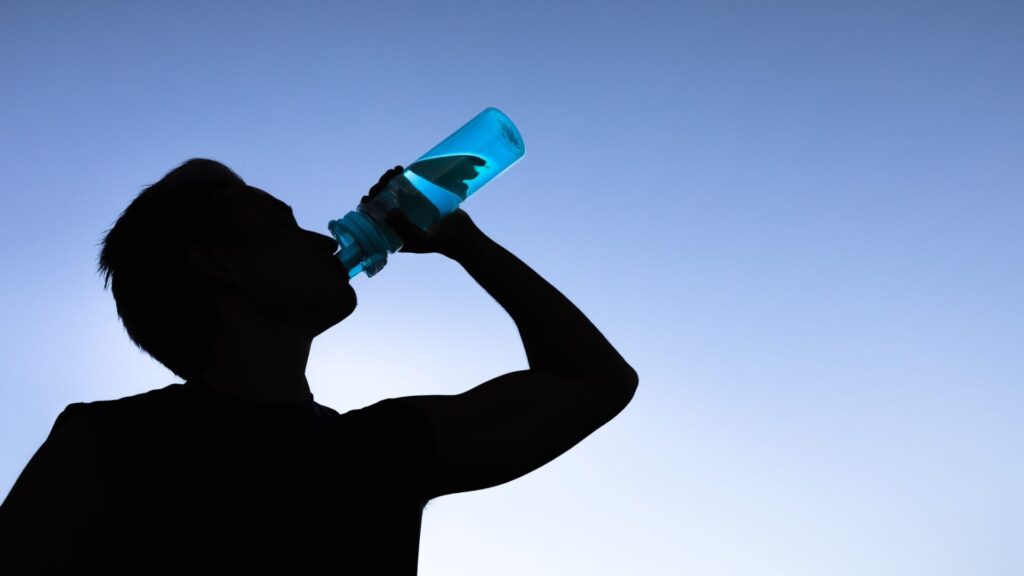
Athletes and individuals with an active lifestyle have unique hydration needs that go beyond the standard guidelines. During physical exertion, the body loses not only water but also electrolytes through sweat, which are vital for muscle function and the regulation of body fluid balance.
Importance of Electrolyte Balance
● Electrolyte balance is critical for athletes as it impacts muscle contraction, heart function, and nerve signaling. An imbalance can lead to cramping, fatigue, and even more severe conditions such as hyponatremia.
Rehydration Strategies for Athletes
● For optimal performance and recovery, it’s essential to rehydrate properly post-exercise. This includes drinking fluids that contain sodium and potassium to quickly restore electrolyte balance. While water is fundamental, sometimes sports drinks that provide these electrolytes in the right proportions may be necessary after strenuous workouts.
Tailoring Fluid Intake to Exercise Intensity
● Fluid intake should be tailored to the intensity and duration of the activity. Shorter, less intense workouts may only require water for rehydration, while longer sessions greater than an hour may benefit from the additional electrolytes found in sports drinks.
Personalized Hydration Plans
● Athletes should consider consulting with a sports nutritionist to develop a personalized hydration plan. This plan could take into account factors such as individual sweat rate, the sport’s specific demands, environmental conditions, and personal history with hydration issues.
By understanding the precise hydration needs that align with their level of activity, athletes can optimize their performance, recovery, and overall health.
Hydration in Different Climates and Seasons
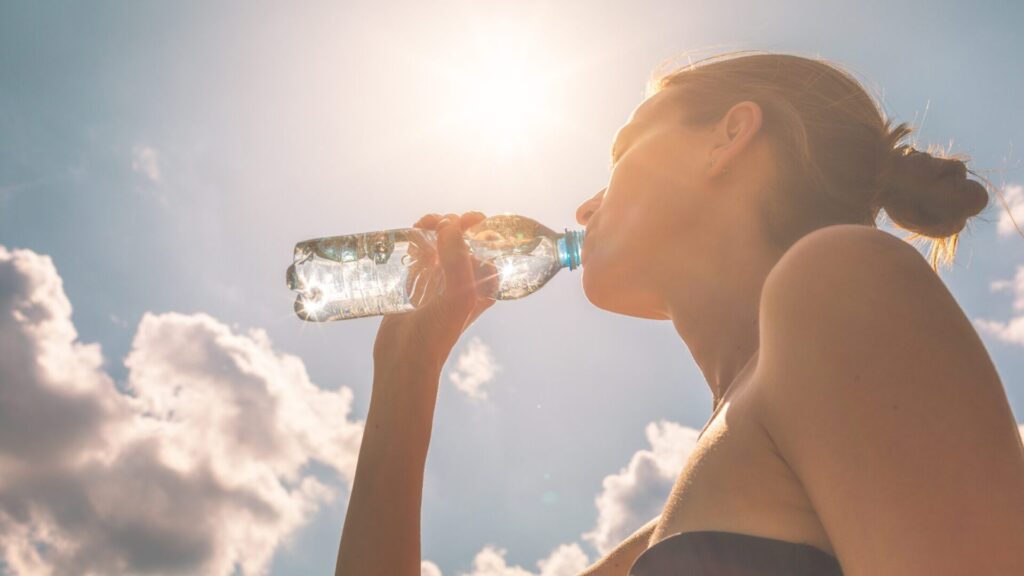
Adapting your hydration habits to suit a variety of climates and seasons is crucial for maintaining optimal health. Extreme temperatures, whether hot or cold, demand a keen awareness of one’s fluid intake.
Staying Hydrated in Hot Weather
● In hot climates or during the summer months, it’s essential to increase fluid intake to compensate for the loss of water through excessive sweating. Always carry a water bottle, and include electrolyte-enhanced beverages if you’re outdoors for extended periods or engaged in physical activity. Wearing loose, breathable clothing can also help minimize fluid loss.
Hydration in Cold Environments
● Cold weather poses a deceptive risk for dehydration. Because sweat evaporates more rapidly in the cold, you may not realize how much fluid you’re losing. Take regular hydration breaks and drink warm fluids like hot herbal teas to maintain body temperature and fluid levels. Don’t wait until you feel thirsty, as the thirst response is diminished in colder temperatures.
Monitoring Hydration in Varying Conditions
● Regardless of weather conditions, it’s wise to monitor the color of your urine as a hydration indicator. A pale yellow color typically signals proper hydration, while a darker color might indicate the need to drink more fluids.
Adjusting Fluid Intake According to Seasonal Activities
● Seasonal sports and activities can drastically alter your hydration needs. Whether you’re skiing, swimming, or running, adjust your water intake to match the activity’s intensity and the surrounding environment.
Planning Ahead in Extreme Conditions
● When anticipating exposure to extreme weather, planning ahead is essential. Hydration packs are convenient for outdoor adventures, and drinking small amounts of fluid at regular intervals is more effective than consuming larger volumes less frequently.
Through a conscious effort to adjust hydration strategies in accordance with the climate and season, individuals can maintain adequate hydration levels and enjoy a safer and more comfortable experience in any environment.
Myths and Misconceptions About Hydration
Despite the importance of hydration for our health, some several prevalent myths and misconceptions can mislead individuals about proper hydration practices. In this section, we will debunk some of these common myths and shed light on the factual information regarding hydration.
Myth: You Must Drink Eight Glasses of Water a Day
● The eight glasses a day rule is an oversimplified guideline that does not account for the varying water needs of individuals. Actual fluid requirements depend on factors like age, sex, weight, activity level, and climate.
Myth: Thirst Isn’t a Good Hydration Indicator
● Contrary to the belief that thirst is an unreliable indicator, it is generally a proper initial signal. Thirst begins to inform us to drink long before we are critically dehydrated. However, relying solely on thirst may not be adequate in extreme conditions or for individuals with certain health conditions.
Myth: You Can’t Drink Too Much Water
● While rare, it is possible to consume excessive water, leading to a condition called hyponatremia. It occurs when large quantities of water dilute blood sodium levels, which can be dangerous.
Myth: If You’re Not Sweating, You’re Not Losing Water
● Our bodies lose water through more than just sweat; we also lose it through breathing, urine, and feces. This means that hydration is necessary regardless of perspiration levels.
Myth: Only Plain Water Counts for Hydration
● This is not entirely true; many beverages and high-water-content foods contribute to overall hydration. While water is excellent, fluids like herbal teas and foods like fruits and vegetables also help meet your daily fluid needs.
Myth: Sports Drinks Are the Best Option for Hydration
● Sports drinks can be beneficial for high-intensity athletes due to the electrolytes and carbohydrates they provide. However, for most people engaging in moderate activity, these drinks are not necessary and may contribute to excessive sugar intake.
By debunking these myths and providing accurate information, we can better understand how to stay properly hydrated and maintain our health in various conditions and life stages. It is always best to consider personalized needs and consult with a healthcare professional when creating a hydration strategy that works for you.
Conclusion
Proper hydration is a linchpin for maintaining one’s health across all climates and seasons. It supports optimal physical performance, aids in recovery, and generally improves overall well-being. This document underscores the significance of tailoring your hydration plan to match personal lifestyle factors, including activity levels and environmental conditions. Emphasizing the necessity of adapting fluid intake during extreme weather, whether scorching or frigid, can mitigate the risks associated with dehydration. We have demystified common hydration myths, offering clearer guidance for individuals to understand their hydration needs. As you go about your daily life, remember the importance of regular fluid consumption and consider incorporating the tips and strategies discussed here. By doing so, you can ensure that your body stays well-hydrated, bolstering your health, and enhancing your ability to engage actively in all of life’s adventures.

